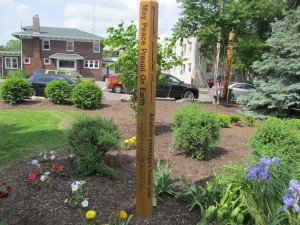 For more information on refugee resettlement, organizations in Lansing that serve refugees and frequently asked questions, please take a look at these learning resources.
For more information on refugee resettlement, organizations in Lansing that serve refugees and frequently asked questions, please take a look at these learning resources.
- Michigan Department of Health and Human Services: Refugee Assistance and Services
- Refugees International
- The UNHCR: The UN Refugee Agency
- United States Committee for Refugees and Immigrants (USCRI)
- United States Conference of Catholic Bishops (USCCB)
Other Lansing Refugee Learning Resources
- Global Institute of Lansing (GIL): Provides classes for refugees of all ages to earn a high school diploma.
- Peckham: Provides employment training and job accommodation for people with disabilities or other disadvantages.
- Refugee Development Center: Provides ESL classes, after-school tutoring and youth programs for better cultural orientation.
- Samaritas: Provides employment services, mentoring and foster care for refugee children and families.
FAQs
What is the difference between a refugee and a migrant?
A migrant is someone who leaves their country voluntarily, to escape poverty, join family members or seek better opportunities. A refugee is someone who flees their country because of persecution or violence based on race, religion, nationality, membership of a particular social group, or political opinion. Someone can only be considered a refugee after they have been interviewed by the United Nations and granted refugee status.
What is the security screening process for refugees before they enter the United States?
The United Nations gathers personal information about each person seeking refugee status and conducts an interview to determine the validity of their story. Only the most vulnerable refugees, less than one percent, are considered for third country resettlement, like the United States.
If a refugee begins the process to be resettled in the United States, they must undergo a thorough vetting process, which can take up 18 months. Their personal information, including iris scans and fingerprints, are checked and verified by the National Counterterrorism Center, the FBI, the Department of Homeland Security, the State Department and many other government agencies to check for any record of criminal history, ties to terrorism or bad actors, or to determine whether they would be a security risk for any reason.
For a more thorough look at the refugee vetting process, please see this infographic made by the White House.
Do refugees depend on government subsidy to live in the United States?
Refugees are required to repay the United States government for their travel to the United States, which helps incoming refugees to start building financial credit. The government holds standards for refugees, such as being employed within six months of resettlement, for those that are physically able. During the interim refugees are given a very modest stipend to help them restart their lives in the United States. For instance, a single person who comes to the U.S.A. will receive $304.00 a month for their bills and rent until they have become employed.
On average, refugees have repaid the United States for their resettlement and have also begun putting additional dollars into our system within five years. Refugees in fact stimulate our economy; they bring cultural diversity, start businesses that create jobs, build our stable work force and revitalize housing. Additionally, they go through extensive background checks before approved for resettlement. STVCC is a designated refugee resettlement agency mandated by the federal government to assist with the basic essentials to help welcome our new neighbors.
Who funds the refugee resettlement programs?
Refugee Resettlement programs like St. Vincent Catholic Charities are paid for by the State Department and other private and government grants.
Videos
Visit stvcc.org/video-category/refugee-services for more learning resources about refugees.
